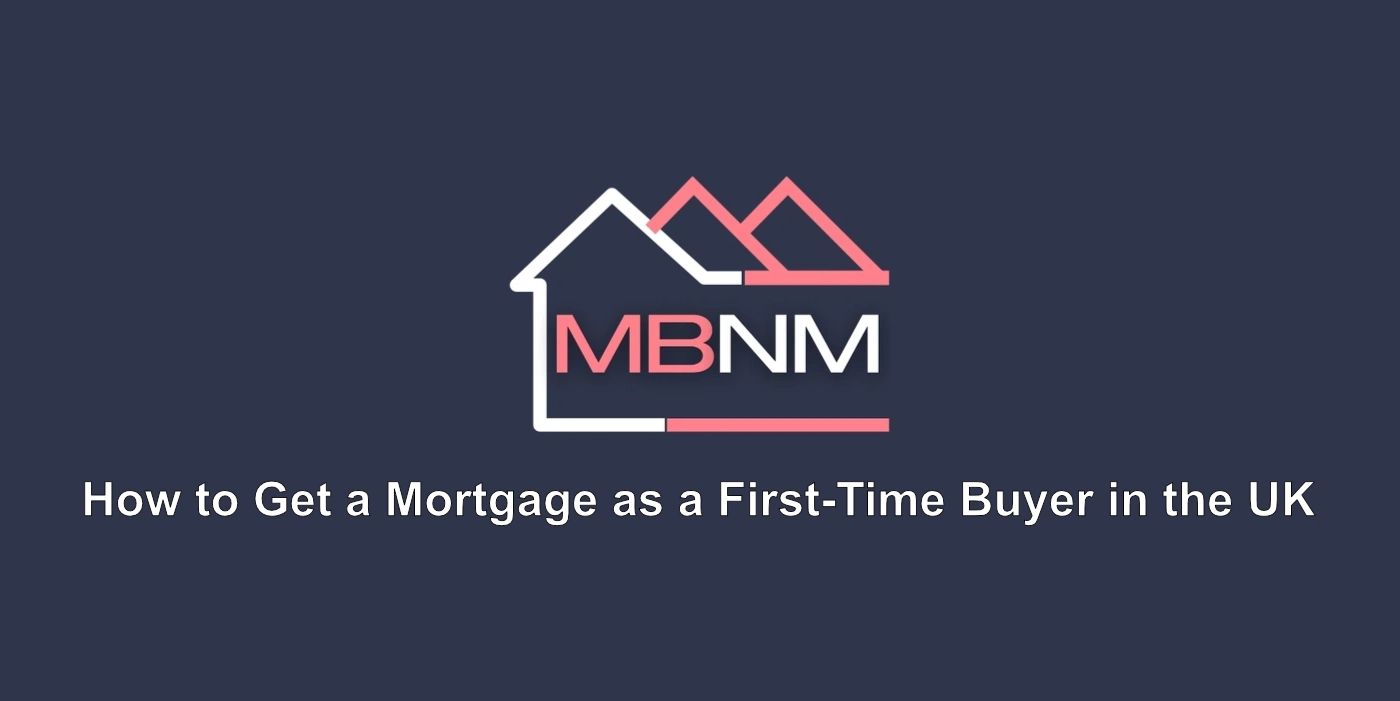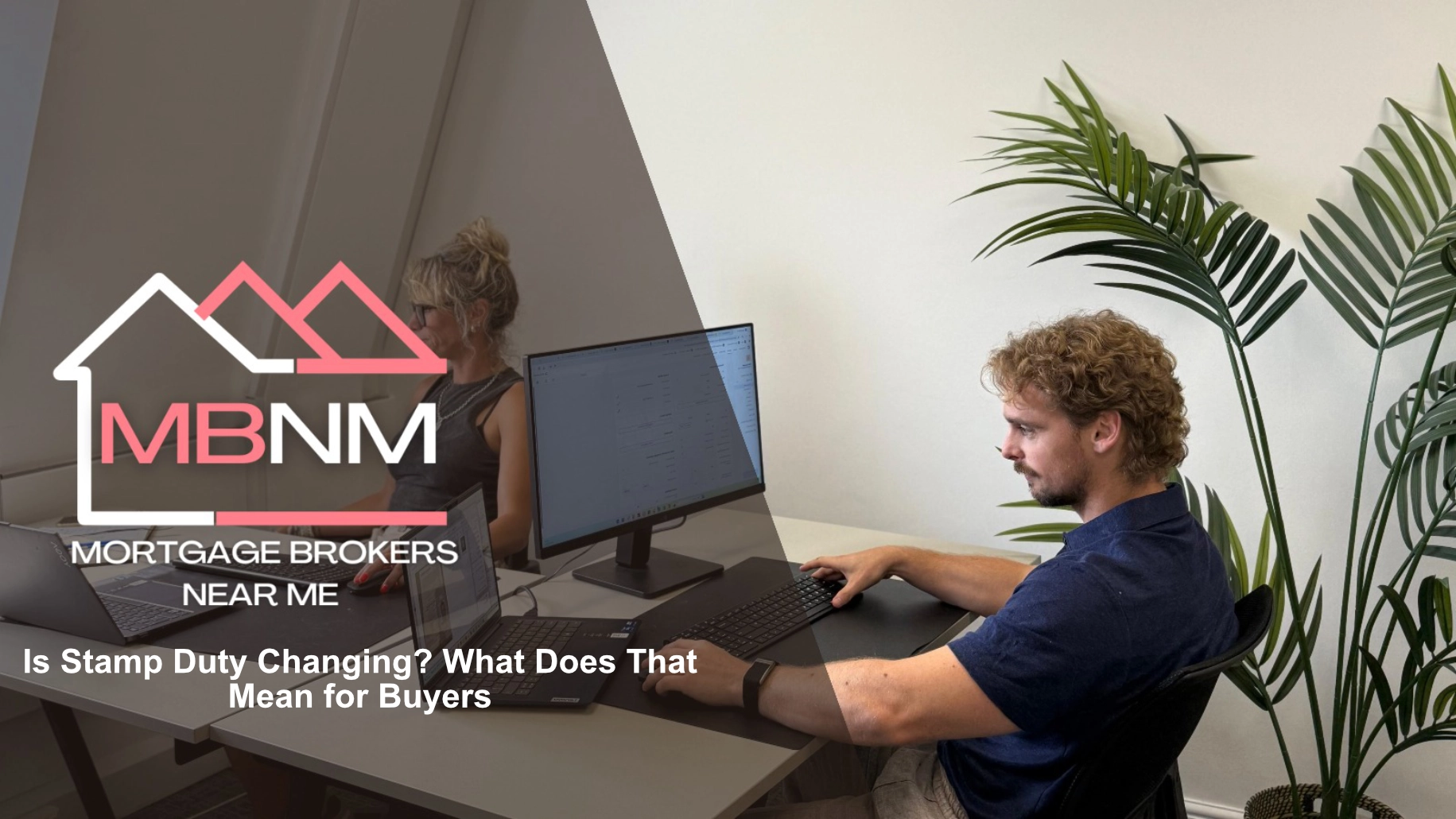Buying your first home is a big step. It’s exciting, but it can also feel confusing deposits, stamp duty, mortgage types and timelines can all seem overwhelming at first. The good news is that once you understand the process and get the right guidance, it becomes far less daunting. This guide walks you through exactly how to get a mortgage as a first-time buyer in the UK, answers the most common questions people search for, and explains where professional advice can make the biggest difference.

Jul 29, 2025

A first-time buyer mortgage is simply a home loan designed for people who have never owned a property before. The eligibility rules are the same as standard mortgages – lenders look at your income, outgoings, and credit history – but there are a few key differences:
These mortgages can make buying your first home more affordable, but comparing deals carefully is important as rates and terms vary widely. As mentined previousily, once you understand the process and get the right guidance like finding a mortgage broker near you – it becomes far less daunting.
Most first-time buyers aim for 10% of the property value as a deposit. That means £20,000 on a £200,000 home. However, 5% deposit mortgages are widely available, especially with government support.
Deposit tiers to consider:
If you’re saving for your first home, a Lifetime ISA can boost your deposit – the government adds 25% to what you save (up to £1,000 bonus per year).
"The biggest breakthrough for first-time buyers often comes when they see the whole process mapped out clearly, it suddenly feels achievable rather than overwhelming." – Will Sharman
First-time buyers benefit from stamp duty relief, which reduces or eliminates this cost on lower-priced homes. As of 2025:
Example: Buying at £350,000 means you pay 0% on the first £300,000, then 5% on £50,000 – a total of £2,500.
This relief is only available if you’ve never owned property before and the home will be your main residence.
From start to finish, most first-time buyers complete in 8–12 weeks, though this depends on the property chain and how prepared you are. A typical timeline:
Being organised with documents, ID, and deposit ready can save weeks off the process.
Choosing the right type of mortgage is just as important as saving your deposit. The main options you’ll see as a first-time buyer are fixed-rate, tracker, and variable-rate mortgages – each works differently and suits different needs.
A fixed-rate mortgage keeps your interest rate the same for a set period, usually two to five years. This means your monthly repayments won’t change, making it easier to budget and plan ahead. Fixed rates are popular with first-time buyers who want certainty, especially in a market where rates may rise.
Tracker mortgages follow the Bank of England base rate, so your payments can go up or down depending on market changes. They sometimes start lower than fixed deals, but you’ll need to be comfortable with the possibility of fluctuating payments.
A variable-rate mortgage is set by the lender and can change at any time. Most people end up on a variable rate once their fixed or tracker deal ends. These are rarely the cheapest option, which is why many buyers remortgage before reaching this stage.
The right choice depends on your priorities – whether that’s predictable monthly costs or flexibility to take advantage of falling rates. If you’re unsure, speaking to a broker can help you compare deals across the market and work out what’s best for your situation.
Not sure whether to go direct to your bank or work with a broker? Our guide on mortgage broker vs bank explains which option often gives better value in 2025.
Buying your first home is exciting, but it’s easy to make mistakes when you’re unfamiliar with the process. We see these issues regularly when helping clients – and avoiding them can save you time, money and stress.
It’s tempting to borrow the maximum amount a lender offers, but this can leave little room for everyday expenses or future changes in circumstances. Aim for a mortgage that feels comfortable, not just one you can technically afford. A broker can help you work out a realistic figure based on your income and lifestyle.
Your deposit is only part of the picture. Legal fees, stamp duty, surveys, insurance, and moving costs can add thousands to your total spend. Planning for these costs upfront means fewer surprises when completion day arrives.
Falling in love with the first property you see can lead to regrets later. Always view a property more than once, ideally at different times of day, and check for things like noise levels, parking, damp, and local amenities. A little patience can make a big difference to long-term satisfaction.
A Mortgage in Principle (MIP) shows estate agents and sellers that you’re serious – and it speeds up the process once you make an offer. Without it, you risk missing out on properties to better-prepared buyers.
Going straight to your bank might seem easier, but it limits your options. Whole-of-market brokers compare deals across multiple lenders, often finding rates or products that aren’t advertised to the public. This can save thousands over the life of your mortgage.
Pro Tip: If you’re unsure about any stage of the process, speak to a broker early. The right advice upfront can prevent costly mistakes later.

Here’s a simplified roadmap for your first home purchase:
For buyers with less conventional income, such as flexible hours, here’s how to get a mortgage on a zero-hour contract and what extra checks lenders may carry out
What credit score do I need to buy my first home?
Most lenders want to see a clean credit history with timely payments. Exact score requirements vary, but stronger credit usually means better rates.
Can I buy with a friend or partner?
Yes, you can apply for a joint mortgage. Your combined income boosts affordability, but you’ll be jointly responsible for repayments.
Is Shared Ownership worth it?
It can lower entry costs, but consider long-term costs like rent on the unsold share and potential restrictions on selling.
Do I need a survey?
Yes, even for new builds. A basic survey can flag major issues, while more detailed ones give peace of mind on older properties.
For broader tips beyond mortgages, check out our full post on what first-time buyers need to know in the UK – it covers budgeting, deposit saving, and government schemes in detail.

"Choosing the right mortgage isn’t just about rates, it’s about matching the deal to your lifestyle and future plans, that’s where proper guidance makes the difference." – Will Sharman
Buying your first home doesn’t need to be stressful. At Mortgage Brokers Near Me, we’ve helped countless first-time buyers secure their homes with clear guidance, competitive rates, and support every step of the way.
Want tailored advice or to check what you could borrow? Contact us today and we’ll talk you through your next steps.

High value mortgages require more than a strong income. Lenders manually assess affordability, income sources, assets, and risk, especially for loans above £1 million. Working with the right broker early can make the difference between smooth approval and weeks of delays, reduced offers, or outright decline.
Read Article
Stamp duty could be replaced with an annual property tax on homes over £500,000, shifting the cost from buyers to sellers. First-time buyers might benefit from lower upfront costs, but sellers could push up asking prices, and downsizers may lose out. Nothing is confirmed yet, but changes could reshape affordability and borrowing power. The key is to plan with today’s rules while staying prepared for tomorrow and that’s where Mortgage Brokers Near Me can guide you.
Read Article
Buying a home is stressful enough. The right broker makes it simpler, faster, and cheaper. The wrong one wastes time and money. Here is a clear, eight-section guide to help you choose well, based on what the top guides do right, plus the bits they miss.
Read ArticleIf you’re buying, moving, or remortgaging, speak with a MBNM adviser and get clear guidance on what’s realistically available to you, before you commit to anything.

